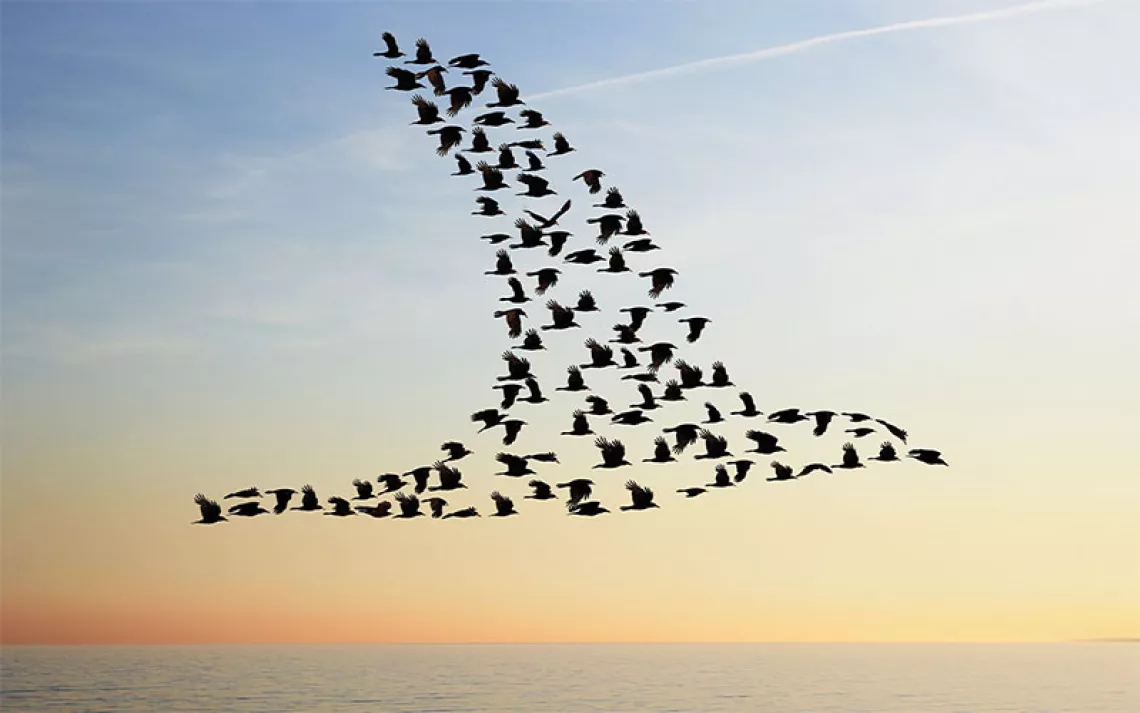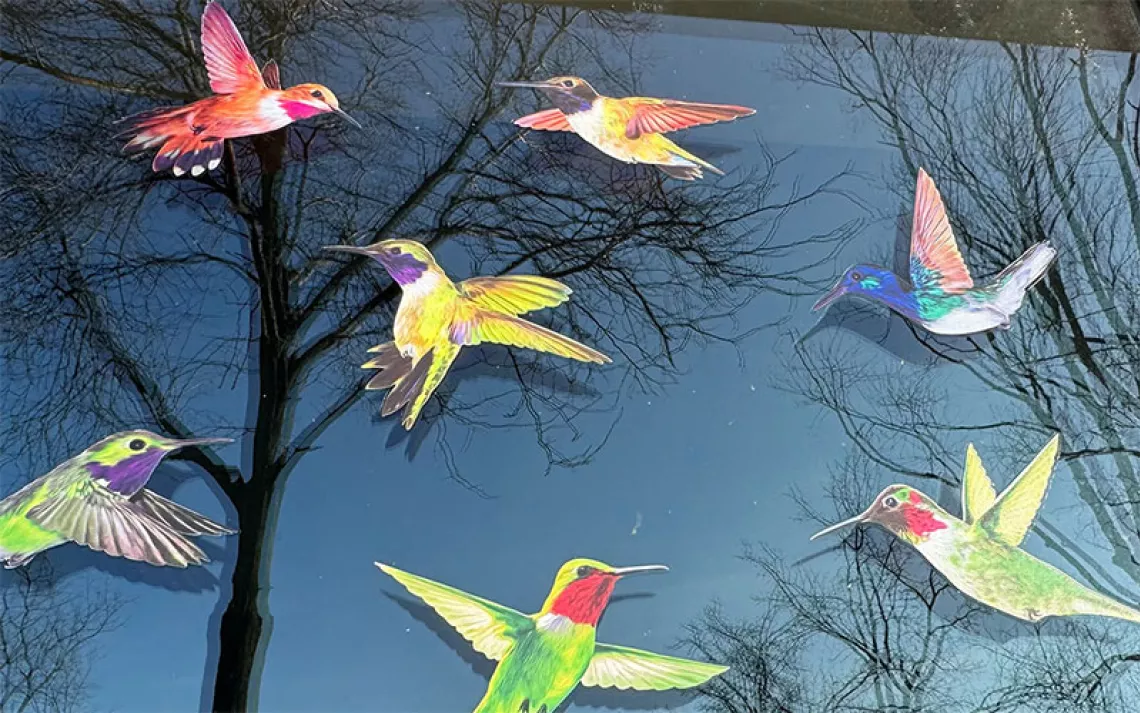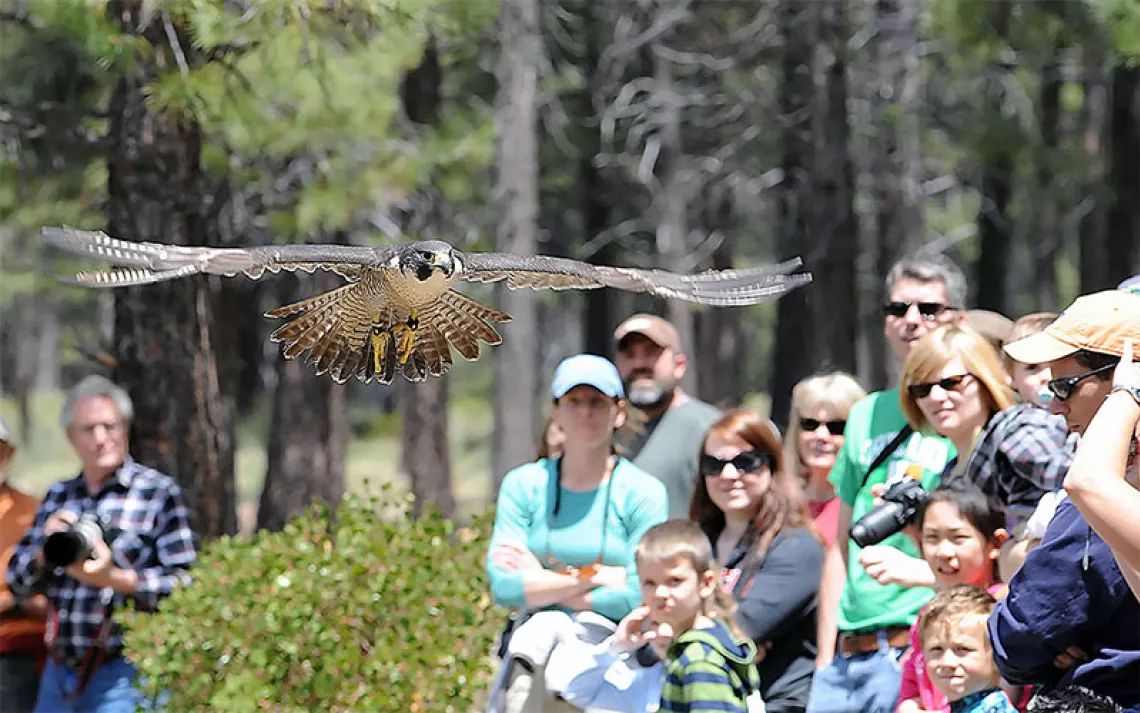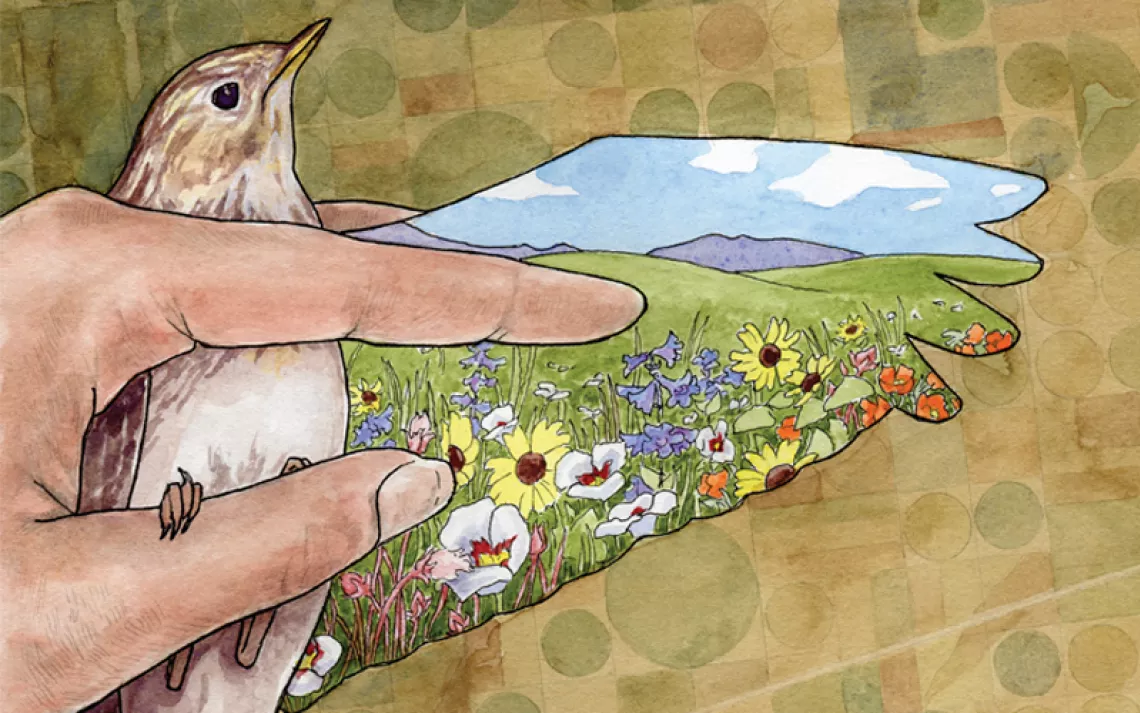Hiking Through the California Redwoods With British Author and Naturalist Helen Macdonald
A short profile of Helen Macdonald, author of H Is for Hawk
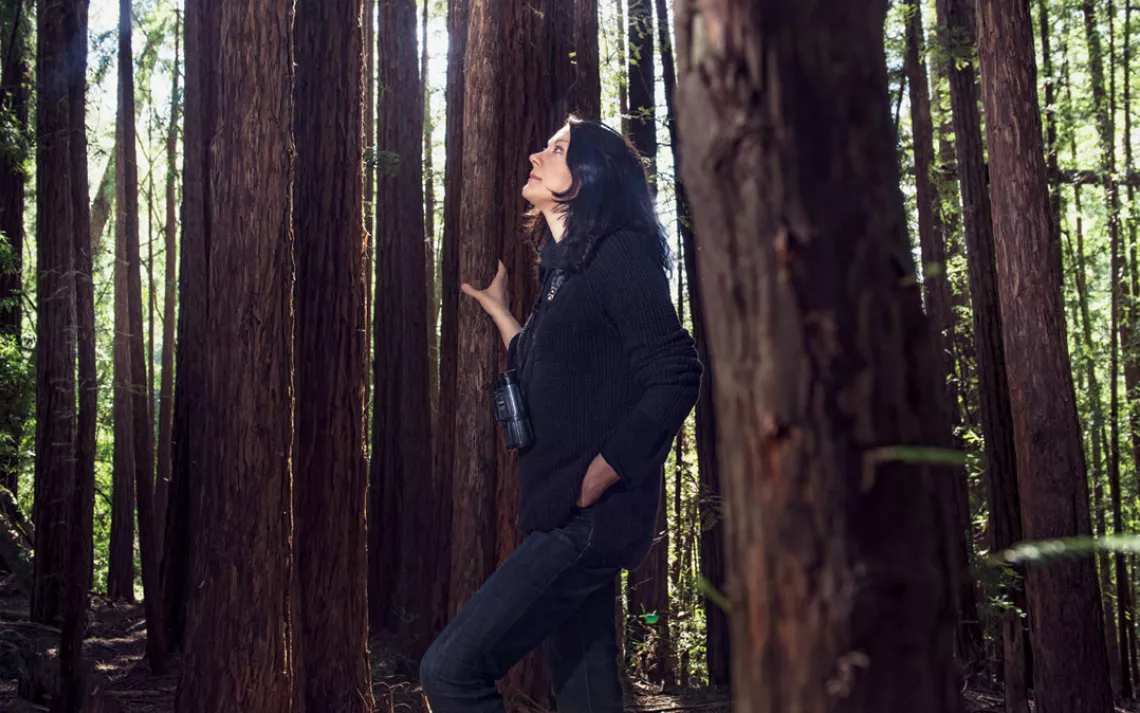
Naturalist and writer Helen Macdonald takes a breather in a redwood grove while on a book tour. | Photo by Jayms Ramirez
The British naturalist and writer Helen Macdonald was halfway through a monthlong visit to the United States, and she was feeling overwhelmed. Her itinerary looked like an American grand tour of independent bookstores, university lecture halls, and NPR affiliates, most days packed with readings and media appearances. "Oh my god. It is quite a lot, isn't it?" Macdonald said one spring morning in San Francisco as she scrolled her phone. "Bam-bam-bam. Not that I'm complaining. But that's one of the most horrible things about this whole experience. I have no time to get out anymore."
By "this whole experience," Macdonald meant the literary fame that has come with H Is for Hawk (Grove Press, 2015), her genre-bending book that is part visceral account of training a goshawk, part literary biography, part chronicle of her father's death. The book has racked up awards and rave reviews, and earned Macdonald a yearlong stint as the New York Times Magazine's "On Nature" columnist.
In a couple of days, she would be at a posh private club in Los Angeles, meeting with Hollywood producers who are making a movie based on her memoir. Actress Lena Headey, known for playing the evil queen Cersei on Game of Thrones, will portray her. For a self-described "girl from muddy hills," the new life was bewildering. Macdonald missed her garden near Cambridge, which had become wretchedly overgrown. She missed rambling England's fenlands.
She was psyched, then, when I invited her for a morning hike amid the redwood groves just north of the Golden Gate Bridge. "I spend all my time in hotel rooms these days," she said.
Macdonald has established herself as a leading voice in the current generation of nature writers, who are more interested in watching humans watch nature than they are in exploring wild nature itself. She thrills to the offbeat (her favorite bird: the bearded vulture), and during the excursion she was as excited about the pigeons on an electric wire as she was about a red-tailed hawk slicing through the trees. Yet her ironic sensibilities don't diminish her passion for old-fashioned pleasures. Walking the trail, she whistled at the chickadees, then answered a raven's groak with expert accuracy.
At the base of a waterfall on Redwood Creek, we stopped for a streamside snack of oranges and black tea. An hour passed effortlessly, the conversation wandering wildly, from the craft of narrative to the English-Welsh feud over red kites.
Macdonald talked about how by observing nature, we can achieve new self-awareness: "We spend so much time thinking that everything around us is for us. When you look at a robin pulling worms out of a lawn, trying to see it as something that is deeply alien and peculiar is thrilling, right?" She discussed the limitations of finding solace in wildness, which she discovered while living with her goshawk, Mabel: "I wanted to be more like a hawk than a person. I wanted to be wild. I left the whole human world, and that was disastrous for me." The conversation turned to her father's death. "What grief does is shatter narrative," she said—a line that could also describe nature writing amid the sixth mass extinction.
Looking around at the waterfall, the ferns, the forest like an "exquisite cathedral," Macdonald said, "This is a difficult place for me to be as an English naturalist. I love England in part because I know the names of everything. I desperately want to get a field guide and walk off and spend the rest of the day identifying things."
But there was no time. She had to get back to San Francisco for another interview.
MORE: Read the full transcipt of this conversation.
 The Magazine of The Sierra Club
The Magazine of The Sierra Club
